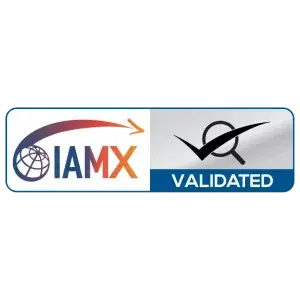A divided Congress makes it difficult to pass the Dignity Act, which would improve U.S. employment-based immigration.
As of 23 May, a bipartisan group of Representatives introduced the Dignity Act, a comprehensive bill aimed at modernizing the U.S. immigration system. In the legislation, representatives Maria Elvira Salazar (R-FL) and Veronica Escobar (D-TX) propose significant changes to the U.S. employment-based immigration system. These include the following, as outlined by the bill sponsors:
1. An increase from 7% to 15% in the green card cap for each country.
2. Assigning visas to individuals who have been waiting for 10 years or more in line based on their priority date will help reduce the backlog of immigrant visas.
3. For immigration based on employment, spouses and children are not counted toward visa caps.
4. As soon as a spouse of an H-1B visa holder receives their H-4 visa, work authorization is automatically granted.
5. Providing STEM-focused Ph.D. graduates from U.S. institutions with the opportunity to remain and work in the United States via an O visa (extraordinary ability).
6. Dual intent is allowed with the F visa (student).
7. Ensure that the children of visa holders legally present in the United States do not age out of eligibility because of delays in USCIS processing.
8. Improving the visa adjudication process and remedying delays by increasing resources available to USCIS, the Department of State, and the Department of Labor.
9. An Immigration Agency Coordinator role will oversee immigration-related functions at USCIS, the Department of State, and the Department of Labor.
Managing Director of Worldwide ERC® Lynn Shotwell commented in a statement: “The modernization of the employment-based immigration system remains a critical priority for U.S. employers as it addresses the adjudication and visa access challenges that regularly affect their talent management strategies. Many of these challenges can be addressed through the Dignity Act, which is a bipartisan effort. In order to advance talent mobility strategies, worldwide ERC and our members are prepared to collaborate with the bill’s sponsors—Representatives Salazar, Escobar, González-Colón, Scholten, Chavez-DeRemer, Manning, and Lawler—and other stakeholders to enact solutions that enable work from anywhere, are agile, and are attentive to employers and workers.”
The Dignity Act also includes:
1. Implementing a seven-year “Dignity Program” to enable participating undocumented immigrants to receive employment authorization and work toward gaining non-U.S. residency. It would also be possible for individuals to apply for citizenship after five years through an additional optional program, the “Redemption Program.”
2. A pathway toward full legal status for Dreamers/DACA recipients.
3. Border security measures will be funded with $25 billion.
4. Assuring border security by requiring electronic passport screening and biometric matching at all land, air, and sea ports of entry, and by directing the Department of Homeland Security to complete and implement biometric exits.
5. E-Verify must be used by U.S. employers to verify employees’ eligibility for employment.
6. In the H-2B program, returning workers will be exempt from visa caps for three years, the application process will be improved, and a public job registry will be maintained by the Department of Labor.
Due to significant divisions in Congress about immigration and border security, the Dignity Act faces an uphill battle despite bipartisan cosponsorship. In light of the Dignity Act, the Worldwide ERC will continue to monitor and share any developments.
At Worldwide ERC, Michael T. Jackson is vice president of member relations and operations.
















